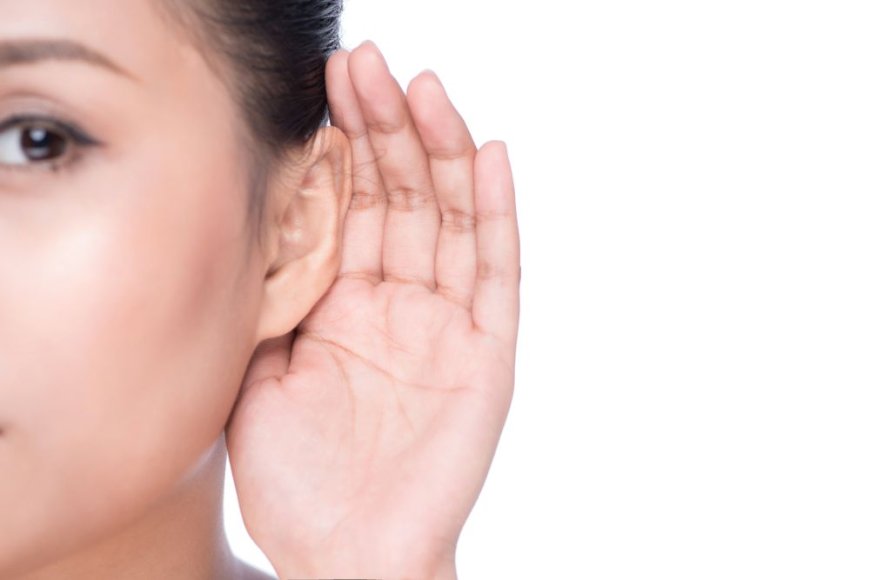Teething and Ear Pain in Infants: What You Need to Know
Teething can cause discomfort in infants, sometimes mimicking or contributing to ear pain. This short guide helps parents understand the difference between teething symptoms and potential ear infections, and offers tips for soothing your baby during this developmental stage.

Introduction: Teething and Ear Pain in Infants
Teething is a significant milestone in your babys early development, but it can also be a source of discomfort. As teeth begin to emerge through the gums, babies may experience a range of symptoms, including irritability, drooling, and difficulty sleeping. However, many parents are surprised to learn that teething can also lead to ear pain. This can be confusing since ear pain is commonly associated with ear infections, leading parents to wonder whether their child is suffering from something more serious.
In this blog, well explore why teething can cause ear pain in infants, how to differentiate between teething-related discomfort and ear infections, and what you can do to help alleviate your babys pain. If the pain persists or is accompanied by other concerning symptoms, its essential to consult with apediatric ENT specialistfor an accurate diagnosis and appropriate treatment.
Why Does Teething Cause Ear Pain?
Teething and ear pain in infants may seem unrelated at first glance, but theres a logical connection. Heres why teething can lead to ear discomfort:
Shared Nerve Pathways:
The pain from teething can radiate to other areas of the head and neck, including the ears. This is because the nerves that supply sensation to the gums also extend to the ears, jaw, and cheeks. When the gums become inflamed as a result of teething, the pain can be referred to the ears, causing your baby to feel discomfort in the ear area.
Increased Salivation and Swallowing:
Teething increases salivation, and babies tend to swallow more frequently. This extra swallowing can sometimes irritate the Eustachian tube, which connects the middle ear to the back of the throat. This can lead to a sensation of ear fullness or discomfort.
Ear Congestion:
Teething can also cause mild inflammation and congestion in the upper respiratory tract, including the ears. This is more likely to happen if the baby is already experiencing a runny nose or cold, which can make the Eustachian tube more prone to blockage, leading to ear discomfort.
Sinus Pressure:
As teeth emerge, especially the molars, the pressure in the upper jaw can sometimes extend to the sinuses. In some cases, this pressure can cause mild discomfort that radiates to the ear area, adding to the teething pain.
Teething vs. Ear Infection: How to Tell the Difference
While ear pain during teething is common, its important to differentiate between teething-related discomfort and a potential ear infection. The symptoms of an ear infection and teething can overlap, so its essential to pay attention to the signs. Heres how to tell them apart:
Teething Symptoms:
- Fussiness or irritability: Your baby may cry more than usual, particularly when you touch their gums.
- Drooling: Increased saliva production is a common symptom of teething.
- Gum swelling or tenderness: You may notice swollen, red gums, especially in the area where the tooth is coming through.
- Chewing or biting: Babies often chew on toys or their fingers to soothe their gums.
- Mild ear pain: Teething-related ear pain tends to be mild and temporary.
Ear Infection Symptoms:
- Persistent crying or pain:The pain from an ear infection is typically more intense and may cause your baby to cry uncontrollably.
- Fever: A fever is a common sign of an ear infection, especially if its 100.4F (38C) or higher.
- Pulling or tugging at the ear: Babies with ear infections often pull on their ear in an attempt to relieve the discomfort.
- Difficulty sleeping: Ear infections can make it difficult for babies to sleep, especially if the pain worsens when lying down.
- Fluid discharge from the ear: If theres a ruptured eardrum, you may notice fluid or pus draining from the ear.
- Loss of appetite: Babies may refuse to eat or drink due to the pain caused by an ear infection.
How to Relieve Teething and Ear Pain
While ear pain due to teething can be distressing, there are several ways to provide relief for your baby:
Teething Rings:
Give your baby a chilled teething ring to chew on. The cold sensation can numb the gums and help reduce inflammation.
Gum Massage:
Gently massaging your babys gums with a clean finger can help soothe the pain caused by teething.
Cold Washcloth:
Soaking a washcloth in cold water and giving it to your baby to chew on can provide comfort for sore gums.
Pain Relievers:
Over-the-counter pain relievers like acetaminophen or ibuprofen can help alleviate teething pain. However, you should always consult your pediatrician before giving any medication to your baby.
Saline Nasal Spray:
If your babys ear pain is related to congestion, using a saline nasal spray can help clear the nasal passages and reduce pressure in the ears.
Warm Compress:
A warm compress placed gently on the ear can help soothe mild ear discomfort. Be sure the compress is not too hot, and avoid placing it directly on the skin.
Maintain Hydration:
Offer your baby plenty of fluids to stay hydrated, especially if theyre experiencing drooling or difficulty swallowing.
When to Seek Medical Attention
While teething is usually temporary and resolves on its own, you should seek medical attention if:
The Pain Is Severe:
If your baby is experiencing significant discomfort, especially if they seem unable to find relief, its time to consult with anENT specialistto rule out any underlying ear infections or other issues.
Persistent or Worsening Symptoms:
If the ear pain lasts more than a few days, or if it becomes more intense, it may be a sign of an ear infection or other medical condition.
Fever:
If your baby develops a fever along with ear pain, it may indicate an ear infection that requires professional treatment.
Fluid Drainage:
If you notice fluid or pus coming from your babys ear, its essential to see anENT specialistimmediately for an evaluation.
Difficulty Hearing or Balancing:
If you suspect your baby has a hearing or balance issue due to ear problems, its important to consult a pediatric ENT specialist for a hearing test and assessment.
Visit Ventura ENT for Pediatric Ear Pain Treatment
If your baby is experiencing ear pain, whether from teething or an ear infection, dont hesitate to seek medical attention. Ventura ENT offers specialized care for pediatric ear problems, including teething-related ear pain and ear infections. Dr. Armin Alavi and our team are here to provide the best treatment options for your babys health.
For an appointment, visit ourContact Uspage or call (805) 335-1690. Let us help your baby feel better and relieve their ear pain.
Disclaimer:
This blog is intended for informational purposes only and should not be considered a substitute for professional medical advice, diagnosis, or treatment. If your child is experiencing symptoms of ear pain or any other health issues, please consult with a licensed healthcare provider for a proper diagnosis and treatment plan.






































